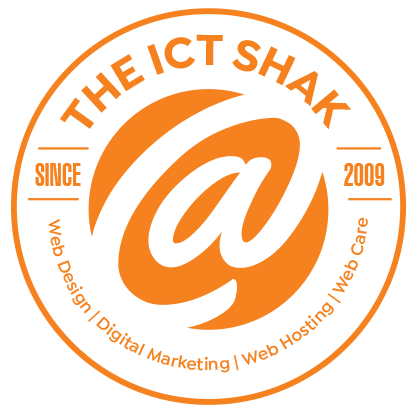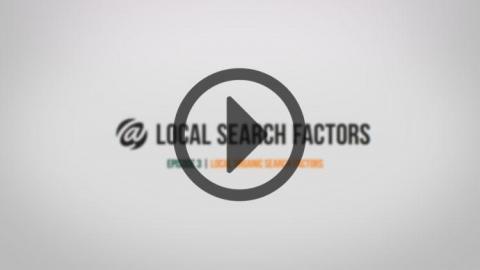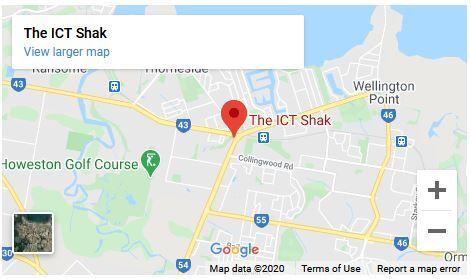Local Organic Search Factors
Today I am going to talk about the factors that affect your local organic search. Organic search is simply when someone puts a search term into a search engine and the results come up. It is not paid advertising nor the local pack (the top 3 that appear directly under the search bar), but the general results.
1. Domain authority
The authority of your domain is important for organic search. The level of authority is primarily determined by two factors. Firstly, the age of domain, that is, how long it has been registered, and secondly, the quantity and quality of the websites that link into your website.
There are other factors but these two are the most important.
2. Quality of Inbound Links
The quality of inbound links impact your domain authority and ultimately your ranking in an organic local search. There are two factors to keep in mind about inbound links. These are:
- Relevance – It is not just about the number (or quantity) of links. In the past you could pay someone for ‘back links’. They would put lots of links to your website on a ‘link farm’ and that helped with your domain authority. This no longer works. Now, search engines are looking for the relevance of these links.
For example, if your website is about beauty products and a fashion blogger writes about a particular brand of beauty products and then links to your website, this will be very helpful to your ranking. However, if the website of a pet store links to your beauty products website, rather than it being beneficial for your ranking, you will be penalised. - Authority – Again, it is not simply the number of links. The higher the domain authority of the websites that link to your website, the better it will be for your local search ranking.
3. Address on Website
If you want to be ranked in the organic search results of a local search, you need to have your street address on your website.
- Schema markup – Using the guidelines on schema.org you can clearly inform Google and other search engines of your name, address and phone number.
4. Click-Through Rate (CTR)
In your webmaster tools you can monitor how many ‘impressions’ of your website appeared in search results. It also shows how many times people have clicked through from those impressions to your website. The higher your CTR, the higher your ranking will be in organic search. You could think of CTR as Google’s way of confirming that the people searching see that your website is possibly what they are seeking, this is then reinforced if the person stays for a significant amount of time on your website.
5. Bounce Rate
Bounce rate is a measure of how long people stay on your website. The longer they stay the better! If people ‘bounce’ out of (or leave) your website very quickly, Google marks your website down. This is because a high bounce rate for a particular keyword means that people who go to your website are not finding what they seek. If a person searches ‘how do I look after my dog?’ and clicks through to your pet supplies website but does not find what they are looking for and leaves quickly, this will negatively impact your organic search ranking.
6. Topical Keyword Relevance
It is extremely important to make sure that each page of your website is optimised for a specific keyword or phrase, a different one for each page. Avoid ‘keyword stuffing’ which is repeating the keyword lots of times on the page. Although this worked in the past, search engines now have more advanced methods of determining what your page is about. Also, if your website does not read well because you keep repeating the same word/s you will be penalised.
7. Diversity of Inbound Links to the Domain
Businesses sometimes make the mistake of having all links to their website ‘land’ on the home page. If there is a Facebook post describing a particular product for sale on your website, have the landing page the web page featuring that product. If you simply have the person ‘land’ on your home page and then try to find the product, it will be frustrating for them and likely to lead to a higher bounce rate.
It is beneficial to have links from as many different types of websites as possible. These should include: local directory listings, Google My Business, social media sites, authority sites and industry specific sites.
8. Geographic (City/Suburb) Keyword Relevance
If there is a geographic signal in the search term make sure it is relevant to your website. For example, if you are in Capalaba, you need to indicate in the content that you cover certain geographical areas such as ‘Redlands’ and ‘Bayside’.
9. Physical Address in City of Search
It is important to have your address on your website and to mark it up with schema markup. See schema.org to find out how to do this.
10. Quality and Authority of Structured Citations
It is important that everywhere your NAP (name, address and phone number) appears online it is consistent. If it is not consistent, the benefit of having the citations will be minimised. The domain authority of the website where the citation appears also impacts the usefulness of the citation.
11. Suburb/City/State in Meta Title Tags
Meta title tag are very important. Make sure you have good description tags, title tags, etc, as these give relevance to the keywords for which you are optimising your pages.
There you have it, the most important factors in Local Organic search! On the next video I will outline the negative factors for local search.
We specialise in helping businesses with their local search engine optimisation
Find out how your business is ranking in your Local Area
![]() Local Search Rankings
Local Search Rankings![]() Local Listings
Local Listings![]() Reviews
Reviews![]() On-site Search Engine Optimisation
On-site Search Engine Optimisation![]() Social Media
Social Media



